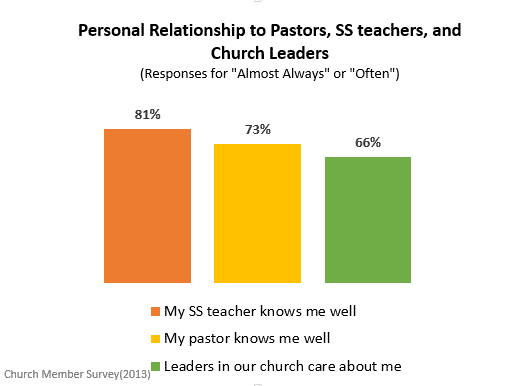We live in a time where it seems as if you can read reviews on everything. If you are shopping online, you can read what others have said about a product you’re interested in. If you are looking for a hotel while traveling, you can see how other travelers have rated a place that you might consider staying at. If you are searching for a new restaurant to try, with a few clicks of the mouse or taps on your phone screen, you can read what other diners have said about it and other surrounding eateries.
When you read through reviews, you will notice certain patterns emerge;one such pattern is that positive interactions with staff, personnel, and customer service representatives frequently goes hand in hand with a positive review, while negative interactions with these same people typically generate a negative review.
Now consider how this might apply to your church. Our last blogs covered the elements of church life that initially drew Adventists to their current congregation, as well as the factors that keep them returning to the same body week after week. The same study that researched these factors (ASTR, 2013) also examined how the warmth of the church impacts the culture of a church.
In three African Divisions and the Inter-American, South American, South Asia-Pacific, and South Pacific Divisions positive interactions and personal relationships with Sabbath School (SS) leaders and pastors are two areas that help foster a warm, inviting church environment. Over half (51.1%) of survey respondents indicated that they feel their SS teachers or leaders almost always know them well, with an additional 29.6% indicating that they often feel this way (see our blog post Stronger Together). Similarly, nearly half (43.4%) of global respondents shared that they feel their pastor almost always knows them well and nearly another third (29.6%) indicated that they often feel this way. A similar survey question asked global church members if they feel that their church leaders care about them. Over a third (36.5%) of respondents shared that they felt their church leaders almost always care about them, with an additional 29.4% responding that they often feel this way. Interestingly, another 29.6% shared that they sometimes feel as if their church leaders care about them.

Interestingly, the pastor of a church typically sets the tone – be it warm or cold – for a church. When asked to evaluate their pastor on a 5-point scale (with 1 being the lowest or “not at all” and 5 being highest or “very much”) respondents gave the following answers:
- Over half (52.3%) shared that they feel their pastor is very much enthusiastic about his ministry.
- Nearly half (46.9%) responded that they feel their pastor is very much helpful in times of need.
- Over one-third (39.2%) of survey respondents feel that their pastor is very much sensitive to the needs of others, with an additional one out of four (25.9%) sharing that he is quite a lot sensitive to the needs of people.

Compared to the figures above, less people in the North American (NAD) and Trans-European (TED) Divisions feel that SS teachers and pastors know them well or very well (NAD—74% for SS teachers and 68% for pastors;TED—71% for SS teachers and 64% for pastors). However, more respondents, over 70% in each of these Divisions, said that the leaders in their churches care about them and 69% indicated that their pastors are very much or quite a lot sensitive to the needs of others.
Church warmth is a key component to not only attracting new members to the church, but also maintaining active membership of those who are currently attending. When you consider your own church, in what ways can you contribute to the warmth of your congregation?
Look for more data on the warmth of a local church in our upcoming blog. Check out our previous blogs for other topics you may be interested in!
Creado en colaboración con el Instituto del Ministerio de la Iglesia (Institute of Church Ministry).
Published by ASTR

